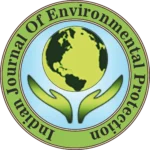IJEP 42(3): 342-349 : Vol. 42 Issue. 3 (March 2022)
Patricia Arttachariya*
Ramkhamhaeng University, Institute of International Studies, Bangkok, Thailand
Abstract
Plastic has many valuable applications and is found in several of the daily products we use. Yet, plastic waste is detrimental to the environment as well as can become life-threatening to humans, animals and marine life. The aim of this exploratory study is to examine the internal (knowledge of plastic waste, concern for the environment) and external factors (interpersonal influence and media) on attitude toward plastic waste. The study also examines the influence of attitude on behaviour related to plastic waste management. The respondents in this study were high school students in twelve schools located in various districts of Bangkok metropolis, Thailand. A total of 467 questionnaires were distributed, out of which 364 were considered valid for analysis. The three main hypotheses posited in the study were tested by multiple regression. The findings showed that all internal and external factors significantly influenced attitude; attitude in turn was also shown to significantly influence behaviour related to plastic waste management. The study concluded by offering several useful suggestions for better plastic waste management practices in the Thai context.
Keywords
Plastic waste, Environment, Attitude, Behaviour, Recycling, Thailand
References
- PETI. 2020. The environmental impacts of plastics and micro-plastics use, waste and pollution: EU and national measures. Policy Department for Citizens’ Rights and Constitutional Affairs, PE 658.279. available at : http://www.europarl. europa.eu/supporting-analyse.
- Sutter, J. D. 2016. How to stop the sixth mass extinction. CNN. available at : https://edition.cnn. com/2016/12/12/world/sutter-vanishing-help/index.html.
- Leung, H. 2018. Five Asian countries dump more plastic into oceans than anyone else combined: How you can help. Forbes. available at : https://www.forbes. com/sites/hannahleung/2018/04/21/five-asian-countries-dump-more-plastic-than-anyone-else-combined-how-you-can-help/?sh=78e38f9f1234.
- McKinsey Center for Business and Environment and Ocean Conservatory. 2015. Stemming the tide: Land-based strategies for a plastic-free ocean. available at : www.oceanconservatory.com.
- Bangkok Post. 2020. War on plastic falters. 4 June pp 8.
- Xinhuanet. 2020. Thailand’s plastic waste on steep rise during COVID 19 pandemic. Available at : Xinhuanet.com.
- Ittiravivongs, A. 2012. Recycling as habitual behaviour – The impact of habit on household waste recycling behaviour in Thailand. Asian Social Sci., 8 (6):74-81.
- Mahanakornpatners.com. 2018. The problem of waste management in Bangkok. available at : https://www.mahanakornpartners.com/smart-cities-in-thailand/.
- Hohmann, R., et al. 2016. An exploration of the factors concerned with reducing the use of plastic carrier bags in Bangkok, Thailand. ABAC ODI J. Vision Action Outcome. 3 (2): 162–181
- Wichai-utcha, N. and O. Chavalparit. 2018. 3 Rs policy and plastic waste management in Thailand. J. Mater. Cycles Waste Manage., 21(6): 10-22.
- Vassanadumrongdee, S. and S. Kittipongvises. 2017. Factors influencing source separation intention and willingness to pay for improving waste management in Bangkok, Thailand. Sustain. Env. Res., 28(2): 90-99.
- Mobley, C., et al. 2010. Exploring additional determinants of environmentally responsible behaviour: The influence of environmental literature and environmental attitudes. Env. Behaviour. 42(4):420–447
- Dunlap, R.E. and R. Jones. 2002. Environmental concern: conceptual and measurement issues. In Handbook of environmental sociology. ed Dunlap and Michelson. Greenwood Press, London. pp 482-542.
- Hungerford, H. R. and G. L. Volk. 1983. The challenges of K-12 environmental education. Paper presented for a National Association of Environmental Education Monograph.
- Bobek, M. 2010. The potential for green marketing in Asian emerging countries: A study of Thailand. master’s Thesis. St. Mary’s University College, London.
- Bearden, W. O. and M. J. Etzel. 1982. Reference group influence on product and brand purchase decisions. J. Consumer Res., 9(2): 183–194.
- Lee, K. 2009. Gender differences in Hong Kong adolescent consumers’ green purchasing behaviour. J. Consumer Marketing. 26(2): 87-96.
- Hofstede, G. 2001. Culture’s consequences: Comparing values, behaviours, institutions and organizations across nations (2nd edn). Sage, Thousand Oaks, CA.
- Meinhold, J. L. and A.J. Malkus. 2005. Adolescent environmental behaviours: Can knowledge, attitudes and self-efficacy make a difference? Env. Behaviour. 37(4): 511-532
- Kollmuss, A. and J. Agyema. 2002. Mind the gap: why do people act environmentally and what are the barriers to pro-environmental behaviour. Env. Education Res., 8(3): 239-260.
- Kandpal, T. C. and L. Broman. 2014. Renewable energy education: A global status review. Renew. Sustain. Energy Reviews. 34(C): 300-324.
- Agamuthu, P. 2001. Solid waste: Principles and management. Institute of Biological Sciences, University of Malaya, Malaysia.
- Khanam, N., et al. 2019. Knowledge, attitude and practice on uses of plastic products, their disposal and environmental pollution: A study among school-going adolescents. J. Datta Meghe Inst. Med. Sci. Univ., 14(2):57-60.
- Pietikäinen, V. 2008. Look beyond the bin! Solid waste management and recycling at the Asian Institute of Technology. Masters Dissertation. Södertörn University College, Sweden.
- Olofsson, A. and S. Ohman. 2006. General beliefs and environmental concern transatlantic comparisons. Env. Behaviour. 38 (6):768-790.
- Wipatayothin, A. 2020. Deal struck to reduce plastic use. Bangkok Post. pp 6.
- Hammami, M.Q., et al. 2017. Survey on awareness and attitudes of secondary school students regarding plastic pollution: Implications for environmental education and public health in Sharjah city, UAE. Env. Sci. Poll. Res., 24:20626–20633.
- Ergen, A., et al. 2015. Effect of materialism and environmental knowledge on environmental consciousness among high school students: A study conducted in Istanbul province. Int. J. Human Sci., 12 (1): 511-526.
- Boldero, J. 1995. The prediction of household recycling of newspapers: The role of attitudes, intentions and situational factors. J. Appl. Social Psychol., 25(5): 440-462.
- Tonglet, M., et al. 2004. Using the theory of planned behaviour to investigate the determinants of recycling behaviour: a case study from Brix-worth, UK. Resour. Conserv. Recycling. 41(3): 191-214.
